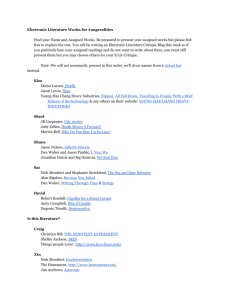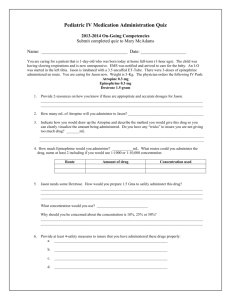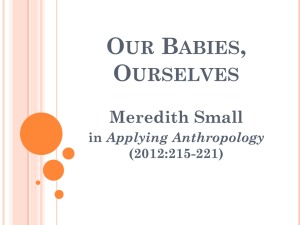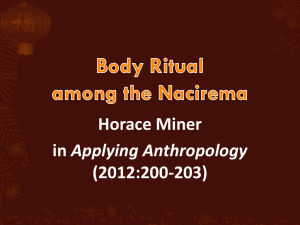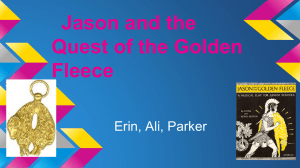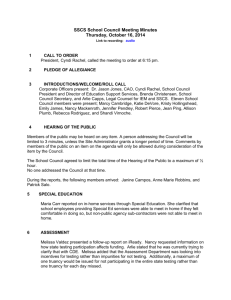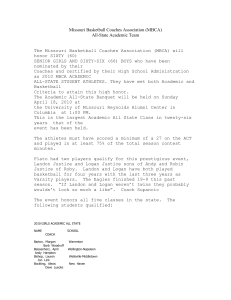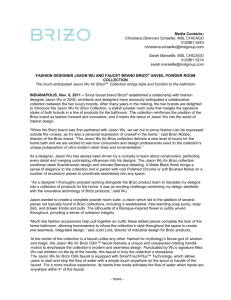Race Without Color - Anthropology Report
advertisement
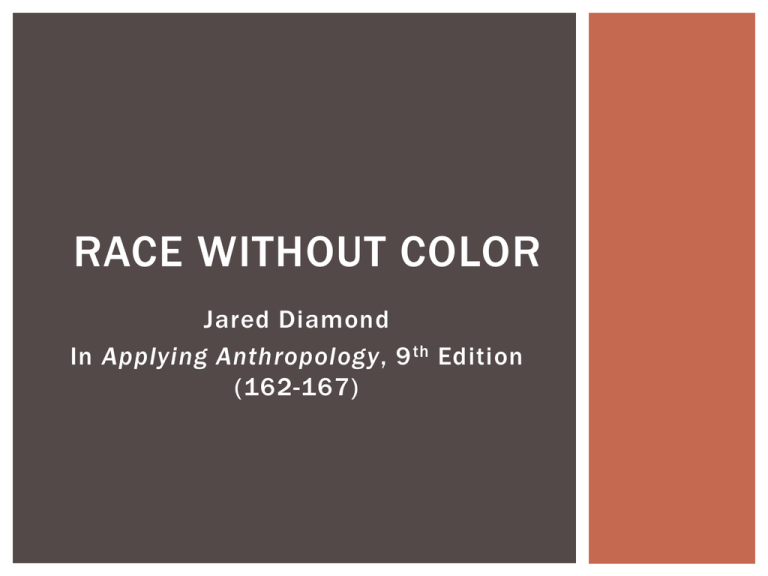
RACE WITHOUT COLOR Jared Diamond In Applying Anthropology, 9 th Edition (162-167) RACE Anthropology born during European colonialism How do we explain difference? Are other people equally human? Ideas of racial determinism justifies conquest and subordination Racial classification schemes, mostly developed in the 1500s-1800s, continue with us From the 1860s, ideas of evolution harnessed to justify inequality = “scientific racism” ©2011 Jason Antrosio, www.livinganthropologically.com Drastically oversimplified view of Western thoughts about others, circa 19th century THEM US Drastically oversimplified view of thoughts about evolution, circa 19th century Animals Man Us: Civilized Man “Scientific Racism” Toxic combination of incorrect evolutionary ideas with incorrect ethnocentric hierarchies Them: Primitive Man Man Animals ANTHROPOLOGY ARGUES Race does not determine behavior not determining of language or culture Race is not a good way to describe cultural difference Racial classifications are not a good way to describe biological difference ©2011 Jason Antrosio, www.livinganthropologically.com SPECIES AND SUBSPECIES Species fact: humans can all interbreed, and produce viable interbreeding offspring We do it whenever we come in contact Race is a designation at the subspecies level Is there enough biological difference to make classifications? YES Do these classifications represent consistencies, patterns and concordances equivalent to traditional race ideas? NO ©2011 Jason Antrosio, www.livinganthropologically.com HUMAN BIOLOGICAL VARIATION Visible Invisible (from Diamond) Skin color Build, body type Height Hair Malaria resistance Lactose tolerance Fingerprints Genetic distinctiveness Blood types Color texture or form Nose Eyes Color, form Lips Ears ©2011 Jason Antrosio, www.livinganthropologically.com CONCORDANCE OR CO-VARIATION VERSUS CLINAL OR INDEPENDENT VARIATION Clinal: most features, like skin color change gradually Features vary independently of each other As Diamond shows, classifications by different criteria produce different groupings ©2011 Jason Antrosio, www.livinganthropologically.com RACE WITHOUT COLOR ©2011 Jason Antrosio, www.livinganthropologically.com HOW CAN WE EXPLAIN BIOLOGICAL DIFFERENCE? Natural Selection Explains sickle cell patterns (Diamond:164) Sickle-cell also good example of adaptive and maladaptive nondirectionality Sexual Selection May help to explain certain traits considered “beautiful” Random Fingerprints ©2011 Jason Antrosio, www.livinganthropologically.com WHAT ABOUT SKIN COLOR? Demonstrates clinal variation Most explanations stress natural selection and Vitamin D Diamond questions natural selection and instead posits sexual selection Although sexual selection is an important evolutionary mechanism—and surely implicated in skin color—recent research seems to confirm natural selection Chaplin, G., and N. G. Jablonski, 2009. Vitamin D and the evolution of human depigmentation. American Journal of Physical Anthropology 139(4):451-61. ©2011 Jason Antrosio, www.livinganthropologically.com RACE AS BIOLOGY? Humans do vary biologically with potential health effects and even for abilities like “intelligence” Diamond, race is an “arbitrary system” (167) Race is a “culturally constructed label that crudely and imprecisely describes real variation” John H. Relethford, Race and global patterns of phenotypic variation 2009:20 But crude labels are socially real, influencing access, opportunities, and outcomes with even greater health effects than ancestry and with even greater effects for abilities like “intelligence” Thank You stay connected Click for Kindle Subscription STAY IN TOUCH Link to http://www.livinganthropologically.com/anthropology powerpoint/race-without-color/ Suggestions and comments welcome E-mail: jason@livinganthropologically.com If this was helpful, please click to donate and spread the word All donations promote Living Anthropologically ©2011-2012 Living Anthropologically

